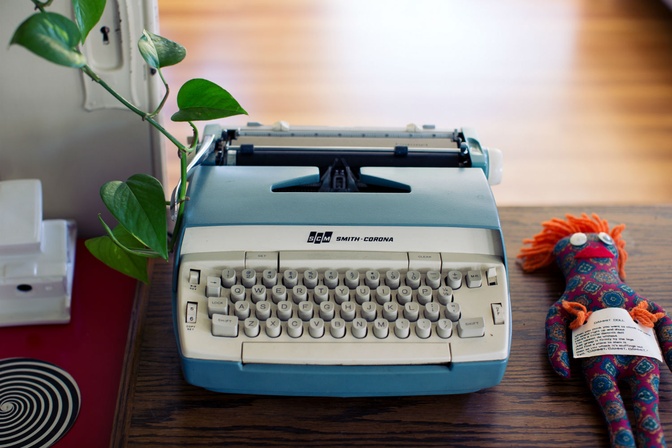We all get stuck from time to time, it’s just a matter of what you do next. We asked some working writers how they cut through the rut.

Reset by embarking on some relaxing activities. For me that involves taking a long walk or trying on all the free cosmetic samples at Chemist Warehouse. There's nothing quite like staring at yourself in poorly matched foundation to really blow the cobwebs away. Nicky Arnall, TV Writer
My number-one tip is to download (on your computer and phone) these apps/programs: Freedom, Anti-Social and SelfControl. And then use them religiously. Sam Cooney, Publisher, The Lifted Brow
Get your lead down on paper. How do you do that? Imagine what you would tell your best mate in one line about the story you're going to write. Once you have your lead (intro) everything will flow much, much easier. Isabelle Oderburg, Communications Consultant, Former Journalist
I live by Julia Cameron's recommendation in The Artist's Way of getting in the habit of writing every day through morning journals. Writing as soon as you wake up in the morning – literally a brain dump of anything that's on your mind. It'll clear your mind of day-to-day life clutter, leaving you free to be creative. Anna Hjelmstrom, Freelance Writer
If I get stuck on one part of an article I try writing another section. There's always a part of an article that comes easier or I'm more interested in, so if I can get that down often that'll shake loose other things. Eventually it'll all be there on the page. Tony Morris, SBS Online, Freelance Writer
I mix up the formatting on the article to try and click things into gear, like playing around with the font size and paragraph alignments. If that doesn't work I sometimes print the page out so I can see everything in a new perspective.
Nick Melin, Former Editor at Scout Jobs
I browse other people's work a bit to get out of my own head. I usually don't have much trouble after that. Georgia Sheales, Writer, Acclaim Magazine
If you're having trouble, tell yourself you're not writing the proper article or piece but you're just getting the scaffolding on paper. In other words, you're just gathering your ideas in one place – broken sentences, one-word ideas, brain dumps – and from there you'll have something to work with. You may even scrape together a whole paragraph. It lifts a lot of pressure off the writing process and helps you get past your first "not very good" ideas to the better ones. Anna Horan, Senior Editor at CHE Proximity, Freelance Writer
I find the best thing is to follow the advice of photographer Robert Capa: 'When the picture is not good enough, go closer.' That is, when you're stuck for words, look to the detail and describe that. The detail is always more liberating than the big picture. Tim Dunlop, Author, Writer
Sometimes I find it helps to copy any old slab of text containing the amount of words I need to hit and paste them in a blank document so I can see how it looks on the page. Then it's "oh, just two and a bit pages. That's easy." From there I'll paste the brief to the top of the page, any supporting material I need to use (like an interview transcript) at the bottom, and have the slab of text I'm needing to recreate sitting there in the middle. I find this can trick me into feeling like the article is already written, that I just need to edit it now and add a few obvious things like people's names and related details. It gives me an obvious framework to operate in, as well makes me feel like I've already achieved something. Marcus Teague, Commercial Editor at Broadsheet, Freelance Writer
If it's an emergency, have a glass of wine. But only one.
Cormack O'Conner, Freelance Writer
My secret weapon against how to get the story going in my mind again is to take a break and get my mind fully off it. It almost sounds like a cop out, but just like learning the art of saying 'no', learning the art of disconnecting and re-centring is just as, if not more, effective. Walk the dog, go for a run, a swim, watch a movie, cook something – anything that's different to staring at a screen. James Banham, Digital Content Producer at Pacific Magazines



